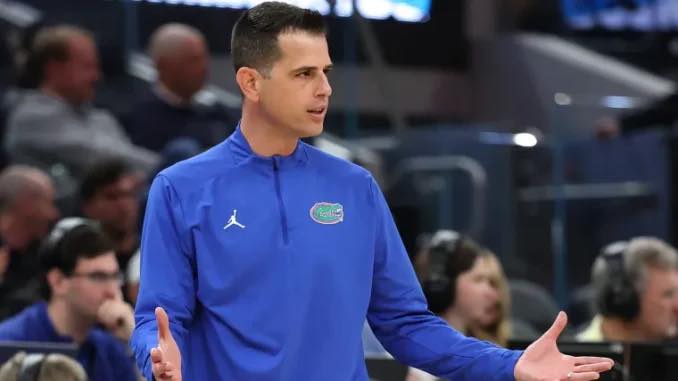Inside Walt Wells’ Bold Recruiting Strategy: Why Eastern Kentucky Is Zeroing In on Tennessee Talent
When Eastern Kentucky football coach Walt Wells walks into a living room to recruit, he’s not just selling a program—he’s selling a vision. And in recent months, that vision has had a very specific focus: Tennessee. To the casual fan, this might seem like a curious move. Why would a Kentucky-based program pour so much energy into a neighboring state known for its own powerhouse programs? But to Wells, this isn’t just about geography—it’s about opportunity, relationships, and the long game of building a winning culture.
Recruiting is the lifeblood of college football, and in the modern landscape, where the transfer portal and NIL conversations dominate headlines, finding your niche is everything. For Eastern Kentucky, a proud program with championship history at the FCS level, that niche is emerging just across the southern border. Tennessee has long been fertile recruiting ground, producing athletes with SEC-level potential who, for one reason or another, slip through the cracks of Power Five rosters. Wells sees that as a golden opportunity, and he’s leaning into it with confidence.
The reasoning is straightforward, but the execution requires precision. Tennessee high school football has exploded in talent depth over the last decade. With the University of Tennessee resurgent under Josh Heupel and SEC recruiting wars heating up, not every talented player in the state can land at a Power Five school. Many of these athletes still want to play close to home, and that’s where Eastern Kentucky comes in, offering an alternative that feels competitive, ambitious, and family-oriented. Wells knows the value of proximity—Richmond, Kentucky, is an easy drive for Tennessee families who want to see their sons play without hopping on a plane or making a cross-country trip. That’s a selling point that matters more than most fans realize.
But there’s more to this strategy than a map. Wells has deep personal and professional ties to the Volunteer State. His coaching journey has taken him through multiple stops in and around Tennessee, and those relationships run deep. High school coaches trust him. Families know his name. When he sits down with a recruit, he’s not a stranger—he’s a familiar face in a competitive world where trust often determines who wins the signature on National Signing Day. In an era when recruiting can feel like speed dating, those connections allow Wells to build something more substantial.
Eastern Kentucky’s pitch is resonating because it balances ambition with authenticity. Wells isn’t promising the moon; he’s promising development, opportunity, and a chance to compete for championships. EKU’s tradition helps here—the program has national titles in its history, and that legacy matters to kids who want more than just a logo on their helmet. Combine that with the program’s aggressive approach in the transfer portal and NIL education, and suddenly, EKU doesn’t feel like a fallback—it feels like a smart move for athletes looking to make an impact right away.
When Wells talks about his focus on Tennessee, he frames it as both practical and philosophical. Practical because the talent is undeniable. Philosophical because it aligns with how he wants to build his roster—tough, disciplined, and ready for the grind of FCS competition. Tennessee players often fit that mold. They come from competitive high school programs, many with exposure to top-tier coaching and facilities. They’re battle-tested. That translates well to a program like EKU, which prides itself on physicality and resilience.
The impact of this strategy is already visible. Eastern Kentucky’s recent recruiting classes have featured multiple Tennessee prospects, and early returns suggest that this pipeline is paying dividends on the field. Players are contributing sooner, and the overall athleticism of the roster has improved. Wells points to that as validation of his approach—not because he’s chasing stars, but because he’s chasing fit. In his mind, a three-star player with the right mindset can become a five-star impact player in the right environment.
Of course, recruiting in Tennessee isn’t without its challenges. The competition is fierce, even for players who don’t land SEC offers. Group of Five schools like Memphis and Middle Tennessee State are aggressive in the region, not to mention FCS programs like UT Martin and Chattanooga that have their own strongholds. Then there’s the looming presence of NIL, which has changed the calculus for many families. Wells knows he can’t compete dollar-for-dollar with bigger programs, so he focuses on what he can control—relationships, player development, and a culture that prioritizes more than just football.
Talk to people around the program, and they’ll tell you that Wells is relentless in this pursuit. He’s at high school games, he’s in the weight rooms, he’s talking to parents, coaches, and community leaders. It’s an old-school approach in a new-school era, and it resonates. Because for all the changes college football has seen in recent years, the core of recruiting remains the same: kids and families want to feel valued, and they want to trust the people who are asking for their commitment. Wells understands that better than most, and it’s why his Tennessee strategy feels less like a gamble and more like a calculated investment.
The implications of this approach extend beyond wins and losses. Recruiting pipelines have a way of shaping program identity. If EKU continues to pull talent from Tennessee, it could redefine the team’s style of play, its recruiting footprint, and even its fan engagement. Imagine a roster dotted with Tennessee athletes making big plays in the ASUN-WAC, drawing families and fans from across state lines to Richmond on Saturdays. That’s not just good for the team—that’s good for the university, the community, and the brand of Eastern Kentucky football.
For Wells, though, it always comes back to the players. He’s quick to deflect credit, quick to point out that the real story isn’t his strategy but the young men who buy into the vision and put in the work. That humility is part of what makes his message land so well. He doesn’t talk about recruiting like it’s a numbers game; he talks about it like it’s a relationship, which, at its best, it is. And when he explains why Tennessee matters, it’s not about chasing headlines—it’s about finding the right people to build something lasting.
The truth is, success in college football is never guaranteed. Strategies evolve, pipelines dry up, and the margin between winning and losing remains razor-thin. But if you’re looking for a blueprint of how to compete in the modern era without losing your identity, Walt Wells is offering one. It’s rooted in geography, grounded in relationships, and fueled by a belief that fit matters as much as hype. And for Eastern Kentucky, that belief might just be the key to writing the next great chapter in its storied football history.
As the season approaches, the proof will come on the field. For now, the focus remains sharp, the message clear: Eastern Kentucky is coming for Tennessee’s best, and under Walt Wells, that pursuit is more than a recruiting pitch—it’s a vision for the future.



